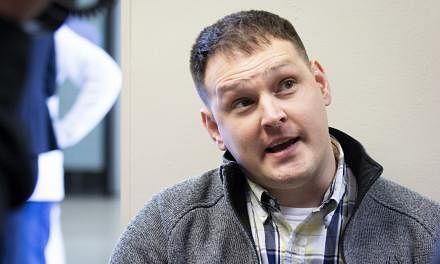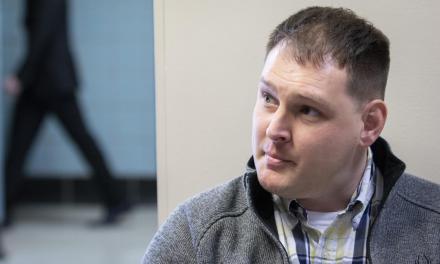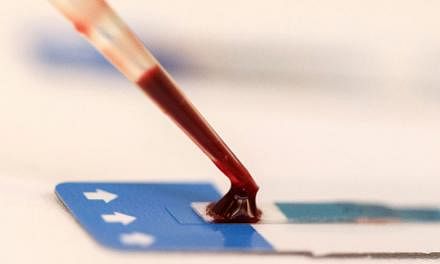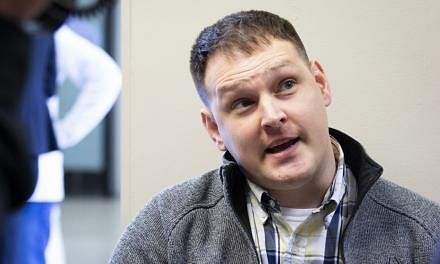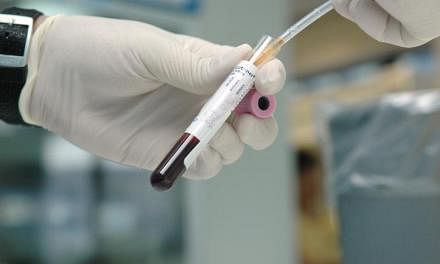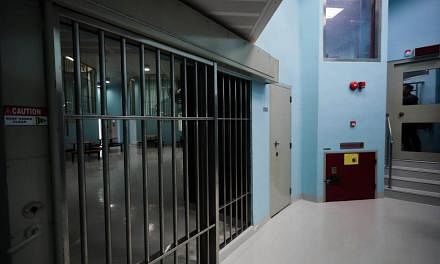In Parliament yesterday, Health Minister Gan Kim Yong went through the sequence of events from 2012 that led to the Ministry of Health's (MOH) disclosure last month of a data leak online involving 14,200 people diagnosed with HIV and 2,400 of their contacts. The leak was made by American Mikhy K. Farrera Brochez.
In 2012, Brochez complained that his then live-in partner, Singaporean doctor Ler Teck Siang, who was the head of the National Public Health Unit, had shared information about his HIV status with others. But there was no indication to MOH then that the information came from the HIV Registry.
In April 2016, Brochez gave the police and government authorities 75 names and particulars from the registry. This was the first time MOH had evidence that Brochez may have access to confidential HIV-related data. In May 2018, Brochez sent a screenshot of 31 records from the HIV Registry to several government agencies, a subset of the 75 he had revealed earlier.
Last month, MOH made a public announcement on the leaked HIV data, after Brochez put the information online. The delay between 2016 and the announcement was not the result of a cover-up but was the outcome of a series of considered decisions, said Mr Gan.
In this extract from his speech, he explained the dilemma MOH faced in weighing whether to inform affected individuals of the leak and whether to make a public announcement. He also spoke on the need to destigmatise HIV and called on Singaporeans to be more accepting of people living with HIV.
Let me address questions as to whether MOH should have informed the public earlier. In 2016, MOH had to decide whether to inform the affected persons and whether to make a public announcement about the incident.
These were not straightforward decisions. On the one hand, there is the need to be transparent. On the other hand, we need to consider the impact of an announcement on the affected persons with HIV - would it serve their interest, or harm them instead?
I discussed this with my medical colleagues in MOH. They emphasised the need to pay particular attention to the concerns and needs of HIV patients. A person's HIV status is a deeply emotional and personal matter. Some patients will experience high anxiety and distress from a disclosure or announcement. Some will feel compelled to reveal their HIV status to family members or friends. Relationships can be disrupted; lives can be changed. We had to exercise care and judgment in making our decision, and the well-being of the affected persons weighed heavily in our considerations.
One key factor was that there was then still no evidence that the confidential information had been disseminated to the public. Brochez had sent the information to government authorities. The police search was extensive and all relevant material found had been seized or deleted.
While there could be no guarantee, MOH had good reason to believe that the information had been secured and the risk of future exposure significantly mitigated.
Ultimately, it was a judgment call - to be made based on the information we had, the considerations for and against an announcement, and the assessed risk of future public exposure of the information. MOH judged that on balance, an announcement then would not serve the interests of the affected individuals, when weighed against the inevitable anxiety and distress they would experience.
What happened in 2018
Two years later, in April 2018, Brochez was deported from Singapore after serving his sentence, and we had no reason, no basis to keep him here.
In May 2018, after his deportation, Brochez sent a screenshot containing 31 records from the HIV Registry to several government authorities. All 31 records were not new. They were a subset of the 75 which Brochez had earlier revealed to the authorities in 2016. MOH lodged another police report.
We considered again whether to inform the affected individuals and the public. The relevant factors were similar to those in 2016. But there was one difference. This time, we could not retrieve the screenshot of the 31 records in Brochez's possession because he was already out of Singapore.
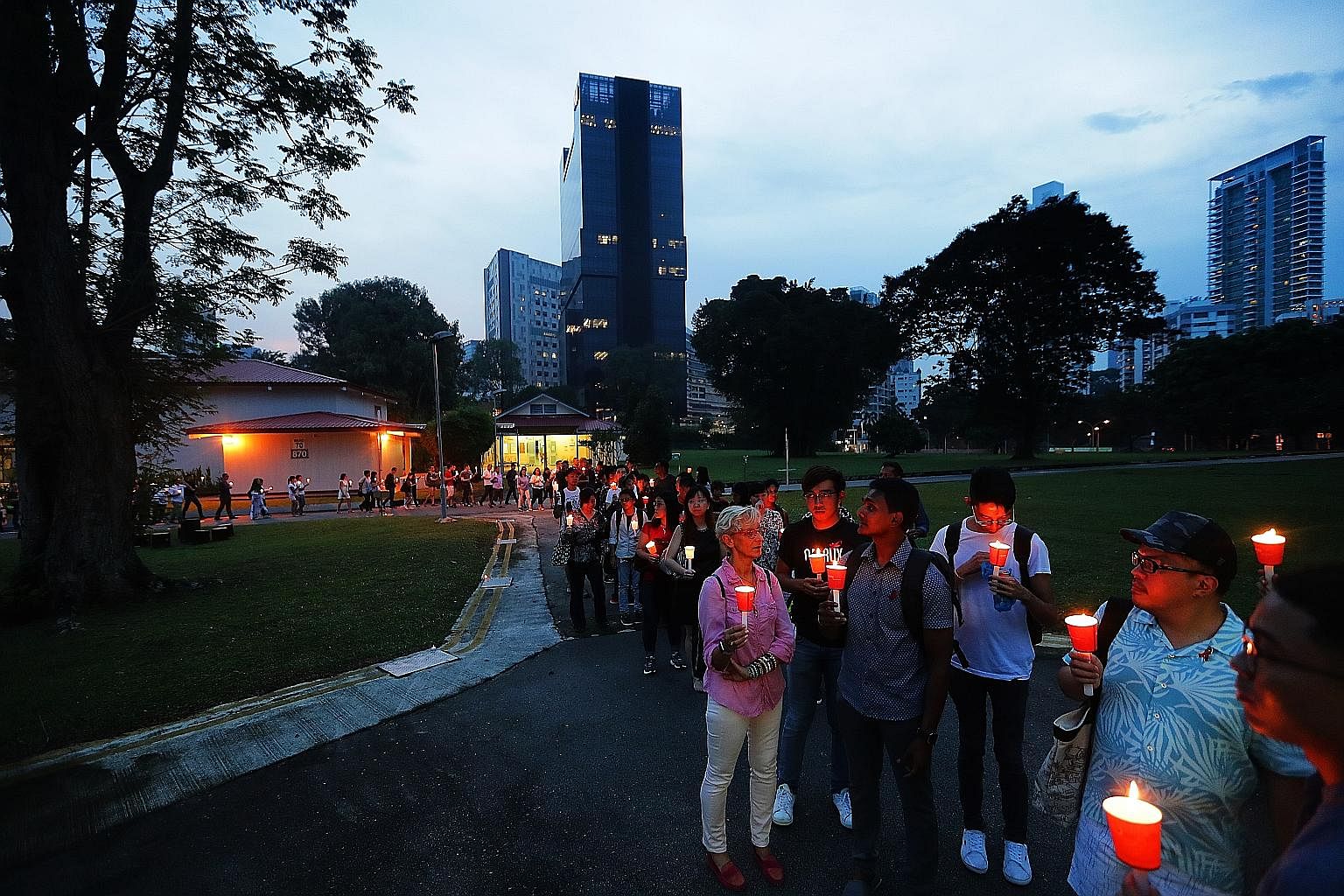
MOH therefore decided to contact the 31 affected individuals and alert them to the matter. We did not make a public announcement as there was still no specific evidence that Brochez had more information beyond these 31 records.
Furthermore, as on previous occasions, Brochez had shared it only with government authorities, and not to any wider audience. A public announcement would create anxiety and distress not just among the 31 persons but also other HIV patients whose names were in the registry.
In September 2018, Ler was convicted for abetting Brochez to commit cheating, and also for providing false information to the police and MOH. He was sentenced to 24 months' imprisonment. Ler has appealed and this is scheduled to be heard in March 2019.
Why is January 2019 different?
The most recent incident in January 2019 stands on a different footing from the earlier incidents. It showed that Brochez probably still possessed the entire HIV Registry, beyond just the 31 records. He had also put the information online and provided the link to a non-government party.
This new situation meant that the likelihood of the identities of affected persons being made public by Brochez had increased significantly.
MOH therefore decided to make a public announcement on Jan 28, even though we remained deeply concerned about the impact this would have on the affected persons.
We sought to quickly contact each of the affected individuals to inform them of the circumstances and also to offer them assistance prior to the announcement. We worked with the police and other relevant parties to disable access to the information as quickly as possible.
Basis for decisions and actions
At this point, let me reiterate the basis of our decisions and actions, especially on the issue of disclosure and announcement.
At each juncture - May 2016, May 2018 and January 2019 - MOH had to decide whether to inform the affected persons and make a public announcement.
In making those decisions, MOH had a responsibility to balance the opposing considerations and exercise judgment on what would best serve the interest of the affected persons and the public.
MOH made a judgment call, balancing the various considerations. It is arguable that MOH should have made a different call. But I reject any allegation that MOH sought to cover up the incident. On all three occasions, MOH's primary concern was the well-being of the persons on the HIV Registry.
Today, we still face the same dilemma as we did back in 2016 and 2018. We now know that Brochez retained some data after the police seized all the files they could find in 2016. Quite possibly, he still has more files in his possession.
Should MOH now make known all that Brochez may (or may not) still have in his possession? Do we contact every person whose data may (or may not) be at risk? And in the process inflict more harm on people even though it may ultimately turn out that Brochez in fact does not have the information?
Again, we have to assess and make a judgment call. MOH has decided to continue to manage the situation in a way that reduces the possibility of further exposure. This is consistent with the decision taken in 2016, and again in 2018. It is based on what we believe to be the interest of the potentially affected persons.
INFORMING AFFECTED INDIVIDUALS
MOH has prioritised informing and supporting the affected individuals. We have completed attempts to contact all the affected individuals. But we are unable to reach all of them, as many had dated contact information, given that the registry went back to 1985. Many of the foreigners were work pass applicants who never worked in Singapore, or who previously worked here but are no longer in Singapore.
Among the affected Singaporeans diagnosed with HIV and still living, we have reached 2,400 out of 3,500. Individuals who worry that they may be affected or who have concerns can contact our hotline at 6325-9220.
We seek their understanding that to maintain confidentiality of the information, we have to verify the identity of the caller. Officers manning our hotline will then provide information on the incident and direct callers to available avenues of support.
Call for destigmatisation of HIV
Several members have called for destigmatisation of HIV, and asked how we can protect people living with HIV from discrimination. Stigmatisation is an issue that all of us are concerned with.
Destigmatisation requires efforts across our society. Let me cite some of the efforts by MOH, together with the government and non-government agencies, advocacy groups and voluntary welfare organisations.
ACCESS AND SUPPORT FOR TREATMENT
Persons living with HIV require lifelong treatment. HIV therefore continues to be a serious infectious disease that MOH closely monitors and actively manages for public health reasons. But clinically, HIV treatment has vastly improved over the years, and early treatment can delay disease progression and improve quality of life.
Over the years, MOH has increased financial support and lowered the financial barriers for HIV treatment, through Medisave and MediFund.
Since 2014, HIV anti-retroviral drugs can be supported under the Medication Assistance Fund. The fund provides means-tested subsidies for lower-and middle-income patients (that is, two-thirds of Singaporean patients), covering up to 75 per cent of the cost of anti-retroviral treatment.
In 2015, with the introduction of MediShield Life, persons living with HIV are now covered by our national health insurance scheme should they be hospitalised.
TESTING AND COUNSELLING
We have also made HIV testing and counselling services more widely available.
For example, anonymous HIV testing is now available at 10 sites across the island. Special outreach efforts have also been made for specific groups. For instance, it is part of standard antenatal testing at our public hospitals.
Support from doctors, medical social workers and healthcare workers is also widely available in the public hospitals. Generally, every HIV patient in public healthcare institutions is assigned to a medical social worker to provide assistance upon their diagnosis.
EDUCATING THE PUBLIC AND REDUCING STIGMA
It is easy to stigmatise something that we do not understand. MOH has therefore been working with stakeholders to raise awareness of the disease and reduce stigma for the disease.
In 2017, Guidelines On Managing HIV And Aids In The Workplace (were introduced) to help companies create enabling workplace environments for employees with HIV.
More recently, the Tripartite Guidelines On Fair Employment Practices call for all employers to treat employees fairly and based on merit. This includes employees with HIV.
Seeking cooperation
MOH will continue to work with partner organisations to step up efforts in public education, stigma reduction, prevention, testing, treatment and counselling support. But beyond this, how each of us as individuals relate to persons with HIV also matters, a lot.
Here, I would like to appeal to Singaporeans to stand in support of these affected individuals, and our efforts to fight the stigma against persons living with HIV. I would like to urge the public and media not to share illegally obtained information and inform the police or MOH immediately.
The welfare of the affected individuals in this incident would be something of deep concern for us. We would like to encourage those with concerns to contact us on our hotline at 6325-9220.
You may also call the SOS, Tafep and Action for Aids, or approach the healthcare institutions and professionals that have been providing you care and support.
This has been a regrettable incident caused by the irresponsible and deplorable actions of two individuals.
Ler is a Singaporean doctor and former MOH officer who had been entrusted with the care of our patients, but he had betrayed the trust of the ministry and the medical profession.
I am sorry that the irresponsible actions of one of our officers have resulted in such distress to the affected persons. Ler's case is now before the courts, and he will be dealt with according to the law.
The other - Brochez - is an American citizen who had left a trail of lies and deceit, and now perpetrated a reprehensible act that has affected thousands of persons with HIV. He had already spent time behind bars here for his earlier offences. We will spare no effort in bringing him to justice again for his latest crime.
As individuals and part of the larger Singaporean community, the best way for us to respond to this incident is with sensitivity, understanding and support for those affected.
If we can say no to discrimination and reduce the stigma surrounding HIV, we can turn the harm and discord that the perpetrators seek to sow into a more inclusive and supportive environment for persons with HIV.
